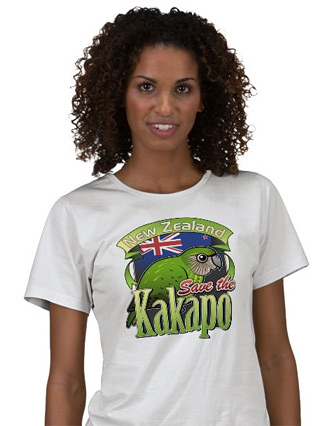T-Shirt Tuesday: Save the Kakapo
This week's featured t-shirt is this New Zealand Save the Kakapo design. Birdorable is proud to support Kakapo conservation: 30% of the retail price of every Birdorable Kakapo product sale will be donated to the Kakapo Recovery Programme in New Zealand. For more information see our Save the Kakapo page.






Comments
Be the first to comment
Thank you!